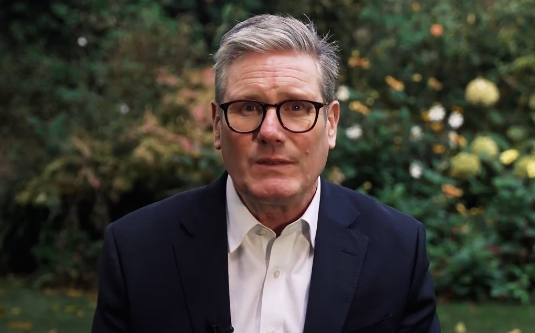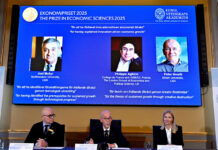During a recent interview with BBC while attending the Commonwealth Heads of Government Meeting in Samoa, UK Prime Minister Sir Keir Starmer addressed the contentious issue of reparations for countries affected by the transatlantic slave trade, stating unequivocally that the UK “can’t change our history.”
His remarks come as Commonwealth leaders initiate a “meaningful conversation” about the potential for reparations, which could cost the UK billions of pounds.
The Prime Minister characterized the transatlantic slave trade as “abhorrent,” underscoring the importance of discussing historical injustices while pivoting the conversation toward contemporary challenges such as climate change.
“We need to focus on today’s challenges, including resilience in the face of climate change and boosting trade among Commonwealth nations,” he said.
Chancellor Rachel Reeves, also present at the meeting, dismissed the idea of financial reparations, adding, “that’s not something that this government is doing.”
This strong stance against reparations has drawn criticism and concern from various quarters within the Commonwealth, where leaders from 56 nations are gathered to address pressing global issues.
As discussions on reparative justice unfold, Commonwealth leaders are expected to advocate for meaningful reparations for historical injustices. Suggestions for reparations vary widely and could encompass financial compensation, debt relief, official apologies, educational programs, and investments in public health and economic support for affected nations.
The issue of reparations has historical significance, especially considering Britain’s legacy as the world’s largest slave-trading nation at the height of the trade. Recent estimates suggest that the UK’s historical slavery debt could exceed £18 trillion, a figure some argue is a gross underestimation of the true impact of slavery.
In his capacity as head of the Commonwealth, King Charles is anticipated to formally open the summit, with an address that will likely pay homage to his mother, the late Queen Elizabeth II, and her deep connection to Commonwealth nations. The King is expected to highlight the Commonwealth’s diverse and expansive nature as a platform for open and respectful dialogue on challenging issues.
As the summit progresses, the attention will remain fixed on how Commonwealth leaders may unite to pressure the UK government towards growth in reparational dialogue, despite Downing Street’s current refusal to include the issue on the agenda.
Keywords: UK Prime Minister, reparations, transatlantic slave trade, Commonwealth Heads of Government Meeting, Sir Keir Starmer, climate change, historical injustices, financial compensation, debt relief, King Charles, Queen Elizabeth II, Commonwealth nations



















